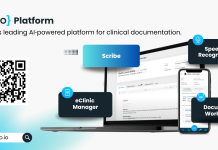NHS investment in digital transformation will revolutionise healthcare, harnessing technology’s power to enhance patient care and streamline operations. We need more
The NHS – long the backbone of the UK’s healthcare system – must harness technology’s power to enhance efficiency, collaboration, and patient care.
Digital transformation isn’t just about adopting technology; it’s about using it to propel our industries forward and ensure enhanced well-being.
Yet, funding remains a significant challenge for the NHS. It is operating in a cash-constrained economy and struggles to secure resources for cutting-edge technology. Government ambitions for digitisation need funding alignment to become a reality.
NHS investment: Funding digital transformation
The recent levelling-up funding has been beneficial, assisting some Trusts to embark on their digital journey.
However, more support is crucial. The timeline for digitisation goals keeps extending, and a significant shift in ministerial thinking is required. While investing in healthcare technology makes economic sense, funds must be allocated strategically for the most significant impact.
Digital transformation in healthcare is not merely an option; it is a necessity. The COVID-19 pandemic has underscored the importance of a resilient and adaptable healthcare system.
Digital tools such as remote monitoring and electronic health records have played pivotal roles in managing patient care during these challenging times. But without adequate funding, the NHS risks falling behind in a rapidly evolving healthcare landscape.
Investing in technology for the NHS is beneficial
Investing in technology for the NHS offers numerous benefits, both in terms of patient care and the overall efficiency of the healthcare system.
Electronic document management systems (EDMS), for instance, can streamline patient data access and reduce administrative burdens on healthcare professionals.
These technologies not only improve patient experiences but also allow healthcare providers to allocate their time more efficiently, ultimately reducing costs.
Furthermore, digital transformation fosters collaboration among healthcare professionals. Integrated care systems enable seamless sharing of patient information, leading to more coordinated care and fewer errors.
It empowers patients by providing them with access to their health information and engaging them in their own care decisions. This shift towards a patient-centric approach is vital for improving health outcomes and promoting preventative care.
Tackling a funding gap and promoting NHS investment
Despite these advantages, the NHS still faces a funding gap. To address this, the government needs a multi-faceted strategy. Firstly, there must be a significant increase in funding.
Investment in the NHS’s digital future is an investment in the nation’s health and economy. Prioritising this funding is crucial to keep the NHS at the forefront of healthcare innovation.
It is imperative that the government adopts a strategic approach. Recognising that resources are limited and it can’t do everything at once, it should prioritise investments in areas that will yield the greatest benefits for patient care and efficiency gains.
Long-term planning is equally vital. The NHS cannot operate on short-term projects and is constantly at risk of losing funding. A multi-year plan outlining the digital transformation roadmap offers stability, enables resource allocation, and fosters a cohesive digital ecosystem within the healthcare system.
Underfunding of the NHS is a vital issue
The underfunding of the NHS’s digital transformation in the UK is an urgent issue. Technology has the potential to revolutionise healthcare, improving patient care, enhancing efficiency, and reducing costs.
With adequate funding and long-term planning, the UK can ensure the NHS remains a world-class healthcare provider in the digital age, benefiting both patients and professionals. The time to act is now, for the sake of our health and the sustainability of our healthcare system.
This piece was written and provided by Jon Pickering, CEO of Miziac











